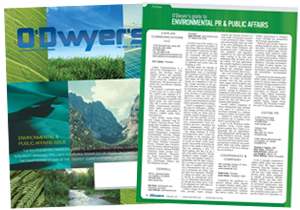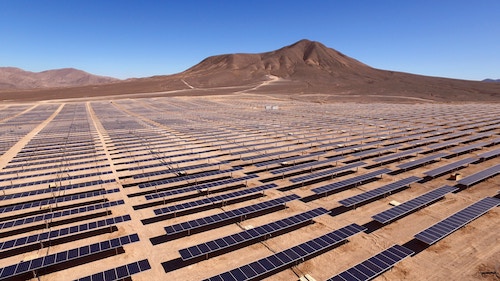 Pericles, the Greek statesman, declared people who take “no interest in public affairs not as apathetic, but as completely useless.” It’s a lesson we should take to heart today.
Pericles, the Greek statesman, declared people who take “no interest in public affairs not as apathetic, but as completely useless.” It’s a lesson we should take to heart today.
The United States Election Project estimated only 36.4% of eligible voters turned out for the recent midterms, which was the lowest overall in the past 70 years. Clearly, Americans hold politicians in extremely low favor. Could it be that most legislators are not seen to be following a code of ethics? The Gallop organization’s Honesty/Ethics in Professions poll for 2014 validates that view, and found lobbyists’ standing at an appalling 6%, members of Congress at 8% and state officeholders at 14%. In contrast, trust among nurses ranked 82%, teachers 70%, and medical doctors and military officers, 69%.
Misinformation isn’t a public service
Among lawmakers, it would seem that doing “the People’s business” carries a hefty price tag, which essentially is the cost of their own reelection. Consequently, too many candidates nowadays check their integrity at the ballot box and auction their loyalties to the highest bidders. The landmark 2010 Citizens United ruling that dismantled bans on corporate and outside campaign spending and recent Supreme Court affirmations haven’t exactly discouraged their behavior.
|
|
The Sunlight Foundation, whose goal is to make government more transparent and accountable, found in a 2014 investigation titled “Follow the Unlimited Money” that campaign resources awash with secret corporate cash — aka “dark money” — “enabled outside groups to run shadow campaigns for or against candidates of their choice.” Their searchable database tracks groups paying for ads and other forms of political communication. Ironically, many of those contenders are the same charlatans who basically resent most public sector employees, despite their own candidacy for highly coveted, bureaucratic positions.
Fortunately our democracy is resilient, and it withstands numerous contradictions amid deep partisan divides where the quid pro quo too often undermines the public interest and our trust on behalf of industry special interests. In January, the 114th Congress swore to “faithfully discharge the duties of the office,” per the Constitution. But, many political figures neglect what George Washington called an obligation to Civic Virtue more than 239 years ago, which was seen as central to the success of the “community.”
Today, imagine how the Founding Fathers would view Civic Knowledge and access to the political process that they promoted to encourage ordinary citizens to actively make a difference. To make matters worse, many politicians swap opinions for the facts and deputize their own ideologies for radical social policy, which contradicts their so-called small government facade.
Public, politicians divided on regulations
It’s time that we call out those who politicize the truth and reject science as long as legislative solutions can be condemned as “too liberal.” It’s no wonder Americans are repelled by intransigence in Congress and within many state legislatures.
Taken together, what are government’s obligations? In 2014, Americans polled found clear majorities that supported protection from the fossil fuel industry polluters as proposed by EPA’s Clean Power Plan. If enacted, we would breathe cleaner air, create more jobs and avert the damages from climate change. A Quinnipiac University poll from June 2014 found 58% of voters supported federal government limitations on greenhouse gas emissions from power plants. A June NBC News/Wall Street Journal poll saw that 67% of Americans supported President Obama’s EPA carbon pollution regulations. A Bloomberg News poll from that same month observed 62% of Americans would pay more for energy if it meant reducing air pollution from carbon emissions. And a May Washington Post-ABC Poll showed that 70% of respondents support regulating carbon from power plants.
Climate change denial gets desperate
In January, EPA administrator Gina McCarthy told the American Meteorological Society at a town hall at the Phoenix Convention Center, “We need to move in a way that’s not based on fear, but opportunity … If you think (climate hasn’t) changed, you’re kind of nuts.”
Will 2015 be the year to end partisan bickering and respect science? Last fall, Florida’s Senator Marco Rubio defiantly told ABC’s “This Week,” “I do not believe that human activity is causing these dramatic changes to our climate the way these scientists are portraying. And, I do not believe that the laws that they propose we pass will do anything about it. Except it will destroy our economy.” Brazenly, Senator Rubio also rejects what 97% of scientists assert, and denies support for his home state’s inherent vulnerabilities, which many say is ground zero for climate change impacts.
An oblivious Representative Steve Pearce (R-NM) similarly claimed during an election-year debate that he’s confident our climate isn’t changing because he has “Googled this issue.” Science deniers have relied on the trite expression “I am not a scientist” to deflect responsibly when confronted with the facts. Michael McKenna, a Republican energy lobbyist and advisor to House Republicans and conservative political advocacy groups concerning energy and climate policy admitted the “I-am-not-a-scientist” idiom has to be “the dumbest answer I’ve ever heard. Using that logic would disqualify politicians from voting on anything.” He added, “Most politicians aren’t scientists, but they vote on science policy. They have opinions on Ebola, but they’re not epidemiologists. They shape highway and infrastructure laws, but they’re not engineers.”
On the campaign trail last fall, another well-known non-scientist, President Barack Obama, said, “It’s funny, if you ask a Republican in Congress if they believe in climate change, they say, ‘Well, uh, I’m not a scientist.’ But when it comes to a woman’s right to choose, suddenly they’re a doctor.” Vice President Joe Biden criticized Florida’s GOP Governor Rick Scott, adding “He says when asked about climate change, ‘I’m not a scientist.’ But he sure the hell thinks he’s a doctor when he tells women what do.” The AP reported that line drew the loudest applause of the event. Likewise, comedian and political satirist Bill Maher told an uproarious “Real Time” TV audience, “I mean, they’re not gynecologists, either, but it never stopped them from commenting on that.”
I think Comedy Central’s Stephen Colbert put it best, saying, “I hope that these conservative leaders can inspire all the children out there watching to think to themselves, ‘Hey, maybe someday I could grow up to be not-a-scientist.’ Remember kids,” he added, “if you get unhooked on science early, maybe someday you could completely lack any understanding of science and then grow up to be the Chairman of the Senate Environmental Committee.” It should be noted that Senator James Inhofe succeeded Senator Barbara Boxer as the new Chairman of the Senate Environment and Public Works Committee. Politico recognized that he isn’t a scientist either, by reporting that the longtime Oklahoma Senator is the Hill’s most colorful critic of man-made climate change science, who categorically cited the Bible to disprove global warming in his 2012 book The Greatest Hoax: How the Global Warming Conspiracy Threatens Your Future.
Education on climate change paramount
According to the Committee for Skeptical Inquiry, healthy skepticism promotes the scientific method and critical thinking. They also cleverly raised concern that the words “skeptic” and “denier” are not synonyms, as ordinarily misused in the November 10, 2014, New York Times article “Republicans Vow to Fight EPA and Approve Keystone Pipeline,” referred to Senator James Inhofe as “a prominent skeptic of climate change.” Scott Horsley, a White House Correspondent for NPR News, called Senator Inhofe “one of the leading climate change deniers in Congress.” The Committee recently called on journalists to “use more care when reporting on those who reject climate science, and hold to the principles of truth in labeling. Please stop using the word ‘skeptic’ to describe deniers.”
You might also wonder what sort of evidence “not-a-scientist” governors and Members of Congress would need to be convinced and, as the popular hashtag urges, to #ActOnClimate. After all, NASA says, “Warming of the climate system is unequivocal, as widespread melting of snow and ice and rising global average sea level.” Similarly, in October, the U.S. Department of Defense released its “Climate Change Adaptation Roadmap” as the Pentagon maintained that climate change is a “threat multiplier” that could exacerbate terrorism, and recognizes a “long-term trend, but with wise planning and risk mitigation now, we can reduce adverse impacts downrange.”
A group of prominent scientists from the University of Miami, Florida State University and Eckerd College met with Governor Rick Scott last August to explain climate science and the urgency for his state to take action. “This is not complicated,’’ David Hastings, a marine science and chemistry professor from Eckerd, said. “We teach this to 18-year-olds every year, and I’ve been doing it for 25 years. It’s not hard science.” Hastings told the Governor, “As scientists, we’re the map makers. As policymakers, you’re the navigators,” and “we need strong leadership from your office, and from you in particular to minimize the impact.” Besides saying, “Thank you all,’’ Governor Scott spoke no other related comments, questions or promises to consider the climate expert’s admonitions.
Whether or not elected officials admit it, the effects of a warming planet are real. The U.S. National Academy of Sciences and the U.K. Royal Society recently joined forces to create a one-minute primer video explaining climate science in the simplest terms. They tackle how burning more fossil fuels heats the planet and contributes to the arctic thawing, and in what ways people generating more carbon pollution increase global temperatures and cause sea levels to rise. Right on cue, Bill Nye, the science educator popularly known as “Bill Nye the Science Guy,” spoke about why it doesn’t take a climate scientist to realize that we are “releasing carbon dioxide in the air at a prodigious rate and ... the earth’s getting warmer faster than it has ever gotten before.” According to Nye, “to have a generation of science students being brought up without awareness of climate change is just a formula for disaster.”
If someone’s ambition were truly to become a citizen legislator by doing the People’s business, they ought to be more concerned with serving the public interest and working toward the common good, rather than fueling ideological misinformation.
* * *
Aric Caplan is President of Caplan Communications in Rockville, MD.



 A focus on all the ways that greenhouse gases are created, not just from fossil fuels, marks the evolution from clean energy and clean tech to climate tech, according to Melissa Mahoney from V2 Communications.
A focus on all the ways that greenhouse gases are created, not just from fossil fuels, marks the evolution from clean energy and clean tech to climate tech, according to Melissa Mahoney from V2 Communications. Kristin Wilson-Palmer, who has been a senior VP in Edelman’s Washington, DC office since 2021, joins the Natural Resources Defense Council as chief communications officer.
Kristin Wilson-Palmer, who has been a senior VP in Edelman’s Washington, DC office since 2021, joins the Natural Resources Defense Council as chief communications officer. Educating the next generation to the facts and science surrounding the climate crisis.
Educating the next generation to the facts and science surrounding the climate crisis. Melanie Janin, who was executive VP at Weber Shandwick, has joined Conservation International as chief communications & marketing officer.
Melanie Janin, who was executive VP at Weber Shandwick, has joined Conservation International as chief communications & marketing officer.



 Have a comment? Send it to
Have a comment? Send it to 
No comments have been submitted for this story yet.